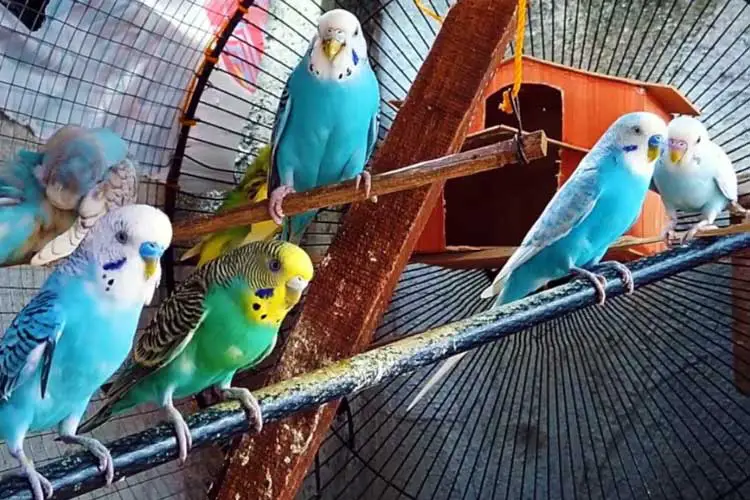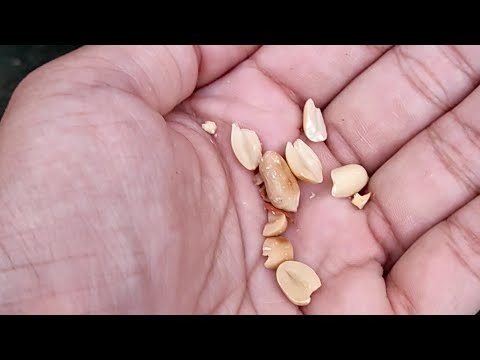Budgies, also known as parakeets, are omnivorous, meaning they eat both plant and animal matter. They eat a wide variety of food items, including fresh fruits and vegetables, seeds, insects, and even small rodents.
But can budgies eat peanuts? The answer is yes; peanuts are one of the many types of foods that budgies will readily consume. However, peanuts are a high-fat, high-protein treat. Therefore, when giving your budgie peanuts, you should provide a small amount.
So, how much peanuts should you serve to your parakeet? Even more, what are the health risks? Join us as we uncover all these, including how to prepare peanuts for your shell parakeet.
Can you feed peanuts to budgies?
Peanuts are a healthy diet and an excellent source of energy and calories. Hence, they can be a healthy treat for parakeets.
There are health benefits associated with feeding peanuts to your pet bird. Nuts are a high-calorie treat that provides essential fats and oils.
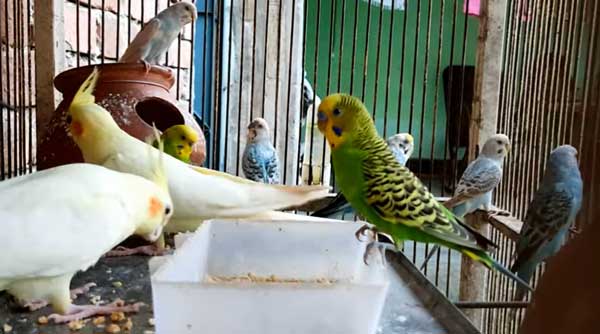
They promote strong bones and plumage. Also, the nuts diet gives parakeets an easier time staying warm in cold environments. Recent studies also show that nuts reduce the risk of coronary heart disease. (journals.tdl.org)
Your bird can gain a lot of nutritional value from each serving of peanuts. The table below shows the nutritional content of 100 grams serving of peanuts.
| Calories | 114 |
| Proteins | 26 grams |
| Oil & Fats | 45 grams |
| Fiber | 13 grams |
| Moisture | 7 grams |
But there’s a catch. If you give your parakeet too many peanuts at once, he may develop gastric problems and an upset stomach. So, you should serve peanuts as an occasional treat.
There is some debate about whether budgies should eat salted peanuts. Well, you should not feed salty or roasted groundnuts to budgies. Instead, serve raw nuts, a natural diet of many parrots in the wild.
Well, a little salt won’t hurt. After all, peanuts naturally have a small percentage of salt. However, large doses of salt can be fatal. So, our recommendation is to serve unsalted peanuts whenever possible.
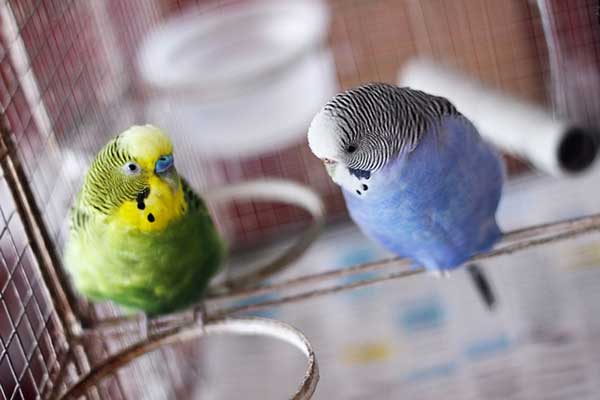
Also, peanut shells can be dangerous for budgies. Peanut shells contain aflatoxin and many other fungal toxins that harm birds. The fungus often develops due to poor storage, especially in damp areas.
So, ensure that you take the shell off. Also, chop up the nut into small pieces before feeding it to your pet bird, to ensure there is no choking hazard. Plus, provide fresh water.
Do Budgies Like Peanuts?
Budgies enjoy peanuts, and there are so many health benefits. However, it should not be their primary food source. Budgies can eat peanuts as a snack. Incorporate it in a high-quality parakeet balanced diet comprising all the nutrients and vitamins. These include seeds, grains, fresh vegetables, and fruits.
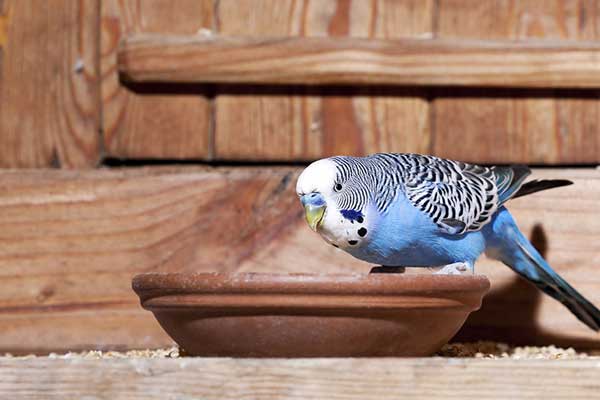
Health Risks For Budgies Eating Peanuts
- Peanuts are large and can get stuck in the throat of a budgie. Your bird can choke on them.
- Feeding peanuts to your parakeet daily can cause health issues such as kidney stones, so feed them only as a treat. (reverehealth.com)
- The shells of the peanut can be harmful to their digestive system. They can cause intestinal blockage and impactions.
- Peanuts are high in fat and calories. If eaten in excess, they can cause obesity or obesity-related diseases.
- Peanuts can be contaminated with the fungus Aspergillus flavus, which produces aflatoxin, a cancer-causing toxin. The toxin can have adverse effects, such as liver damage. (cancer.gov)
How much peanuts should budgies eat?
Too many peanuts will do worse than good. So, moderation is key. Feed your parakeet sparingly by serving 2-3 nuts per day. Don’t go overboard, even if your bird seems to want more.
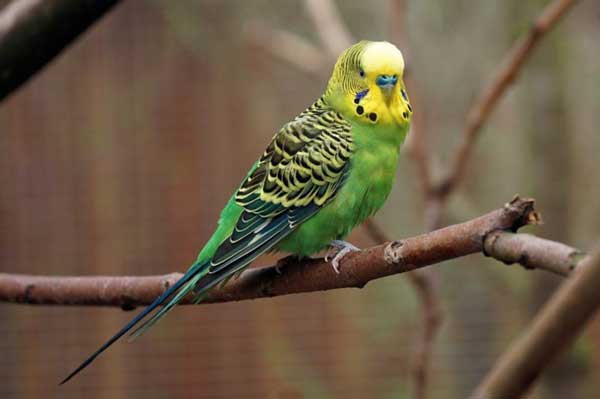
You can use an automatic parakeet feeder. It will save you the trouble of feeding your bird by dispensing the right amount, even when you’re away.
How do you prepare nuts for budgies?
Here are some tips for preparing nuts for your feathered friend. This can be a great way to ensure that your pet bird gets the nutrition and maintains a healthy body weight.
It’s important to only give your budgie fresh, raw nuts that have not been roasted, as roasting can remove important nutrients.
To prepare the nuts, remove the shell. This will help remove any toxins present on the surface. Then place the nuts in a food processor or blender and pulse until they are broken up into small pieces.
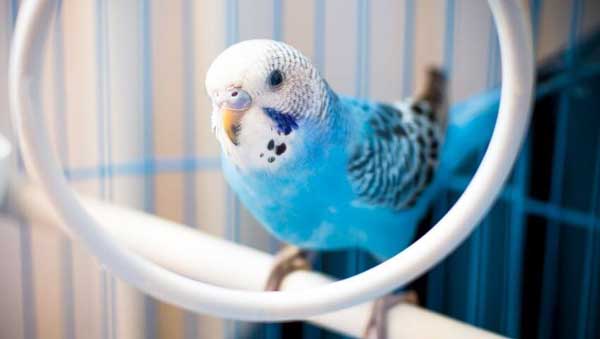
Always make sure that you read the label of anything you buy. Many packaged items include flavored, salted, smoked, or seasoned peanuts that should not be given to parakeets. Also, discard any moldy peanuts.
You can add other foods like fruits, vegetables, or regular seed mix to make a meal. However, cut them up into tiny pieces so they won’t become lodged in your bird’s throat while he eats it.
Can you feed peanuts to baby budgies? If so, how?
Yes, peanuts are a tasty treat for baby budgies. However, it should be in milled form.
Also, you can serve baby parakeets peanut butter. However, it should be natural and free of additives.
However, it will be 6-7 weeks before a baby budgie starts eating on its own. So, ensure it’s in the same cage as the parent to receive all of their nourishment.
Indian Ringneck parakeet eating peanuts (video).
How to prevent aflatoxins in peanuts
Quality is key. Hence, buy fresh peanuts from a reputable bird food supplier. Also, practice good storage. Keep peanuts in a sealed container and store them in a cool place to prevent moisture.
Discard peanuts that show signs of mold. Also, clean feeders thoroughly and ensure they’re dry before replacing them with fresh food.
In addition, just put enough peanuts in the feeder. Too much, and it will go rancid in a couple of days. Furthermore, practice good hygiene by cleaning leftovers.
FAQs
We’ve learned everything about parakeets eating peanuts. Now, let’s look at some frequently asked questions by people.
Fresh peanuts are not toxic and make an excellent source of fresh protein for your pet parakeet. However, you should only serve sparingly, more like a snack.
A parakeet has a long list of nuts on its menu. These include peanuts, Brazil nuts, Hazelnuts, Horse chestnuts, and Walnuts. You can combine them with a mix of seeds, including pumpkin and sunflower seeds.
Conclusion
In conclusion, budgies can eat peanuts. However, you should prepare them properly and serve them sparingly. The best way to prepare peanuts for your parakeet is to soak them in water, remove the shells and serve them in small pieces.
Peanuts are a great source of protein and fat for budgies. So feel free to offer them as a nutritious treat or add them to your budgie’s regular diet.
Do you know if your budgies can eat dried fruit or chia seeds? Read our articles about it to learn more.
